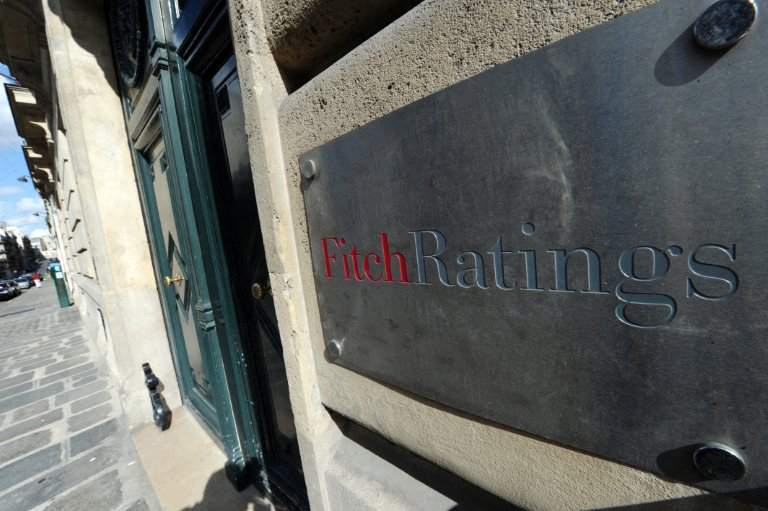
403
Sorry!!
Error! We're sorry, but the page you were looking for doesn't exist.
Fitch Ratings confirms ratings of US, Iceland, Romania with stable outlooks
(MENAFN) Fitch Ratings has affirmed the long-term foreign currency issuer default ratings for the US, Iceland, and Romania, all with stable outlooks. The agency's decision highlights different strengths and challenges facing these countries, providing a comprehensive view of their creditworthiness.
Iceland's rating of 'A' is bolstered by its high per capita income, significant fiscal and foreign reserves, and a large cash buffer that mitigates its external vulnerabilities. Fitch noted that Iceland has achieved one of the strongest economic recoveries among OECD countries following the pandemic, with real GDP by the end of 2023 standing 11 percent above its 2019 level. Despite this robust recovery, Fitch projects a slowdown in Iceland's GDP growth to 0.6 percent in 2024, down from 4.1 percent in 2023. Growth is expected to pick up modestly to 1.9 percent in 2025 and 2.4 percent in 2026. Inflation is anticipated to average 6.1 percent this year but should decrease to 4.1 percent in 2025.
Romania's 'BBB-' rating reflects the positive impact of its EU membership, which brings capital inflows that enhance income convergence, external finances, and macroeconomic stability. However, these strengths are tempered by significant and persistent budget and current account deficits, high budget rigidities, and a considerable net external debt position. Fitch forecasts Romania's economy to grow by 2.5 percent in 2024, up from a 2.1 percent expansion in 2023. Inflation has recently moderated to around 5 percent, down from double-digit figures until mid-2023, with core inflation falling to 5.5 percent in July 2024, the lowest level since January 2022.
The US has maintained its 'AA+' rating, supported by its substantial structural strengths, high per capita income, and its position as the world's largest economy. The US benefits from a dynamic business environment and the unique financing flexibility offered by the issuance of the US dollar, which serves as the global reserve currency. Despite these advantages, the rating is constrained by significant fiscal deficits, a high interest burden, and considerable government debt.
Fitch’s assessments underscore the complex interplay of economic strengths and vulnerabilities that influence the ratings of these countries, reflecting their respective economic health and prospects.
Iceland's rating of 'A' is bolstered by its high per capita income, significant fiscal and foreign reserves, and a large cash buffer that mitigates its external vulnerabilities. Fitch noted that Iceland has achieved one of the strongest economic recoveries among OECD countries following the pandemic, with real GDP by the end of 2023 standing 11 percent above its 2019 level. Despite this robust recovery, Fitch projects a slowdown in Iceland's GDP growth to 0.6 percent in 2024, down from 4.1 percent in 2023. Growth is expected to pick up modestly to 1.9 percent in 2025 and 2.4 percent in 2026. Inflation is anticipated to average 6.1 percent this year but should decrease to 4.1 percent in 2025.
Romania's 'BBB-' rating reflects the positive impact of its EU membership, which brings capital inflows that enhance income convergence, external finances, and macroeconomic stability. However, these strengths are tempered by significant and persistent budget and current account deficits, high budget rigidities, and a considerable net external debt position. Fitch forecasts Romania's economy to grow by 2.5 percent in 2024, up from a 2.1 percent expansion in 2023. Inflation has recently moderated to around 5 percent, down from double-digit figures until mid-2023, with core inflation falling to 5.5 percent in July 2024, the lowest level since January 2022.
The US has maintained its 'AA+' rating, supported by its substantial structural strengths, high per capita income, and its position as the world's largest economy. The US benefits from a dynamic business environment and the unique financing flexibility offered by the issuance of the US dollar, which serves as the global reserve currency. Despite these advantages, the rating is constrained by significant fiscal deficits, a high interest burden, and considerable government debt.
Fitch’s assessments underscore the complex interplay of economic strengths and vulnerabilities that influence the ratings of these countries, reflecting their respective economic health and prospects.

Legal Disclaimer:
MENAFN provides the
information “as is” without warranty of any kind. We do not accept
any responsibility or liability for the accuracy, content, images,
videos, licenses, completeness, legality, or reliability of the information
contained in this article. If you have any complaints or copyright
issues related to this article, kindly contact the provider above.

















Comments
No comment